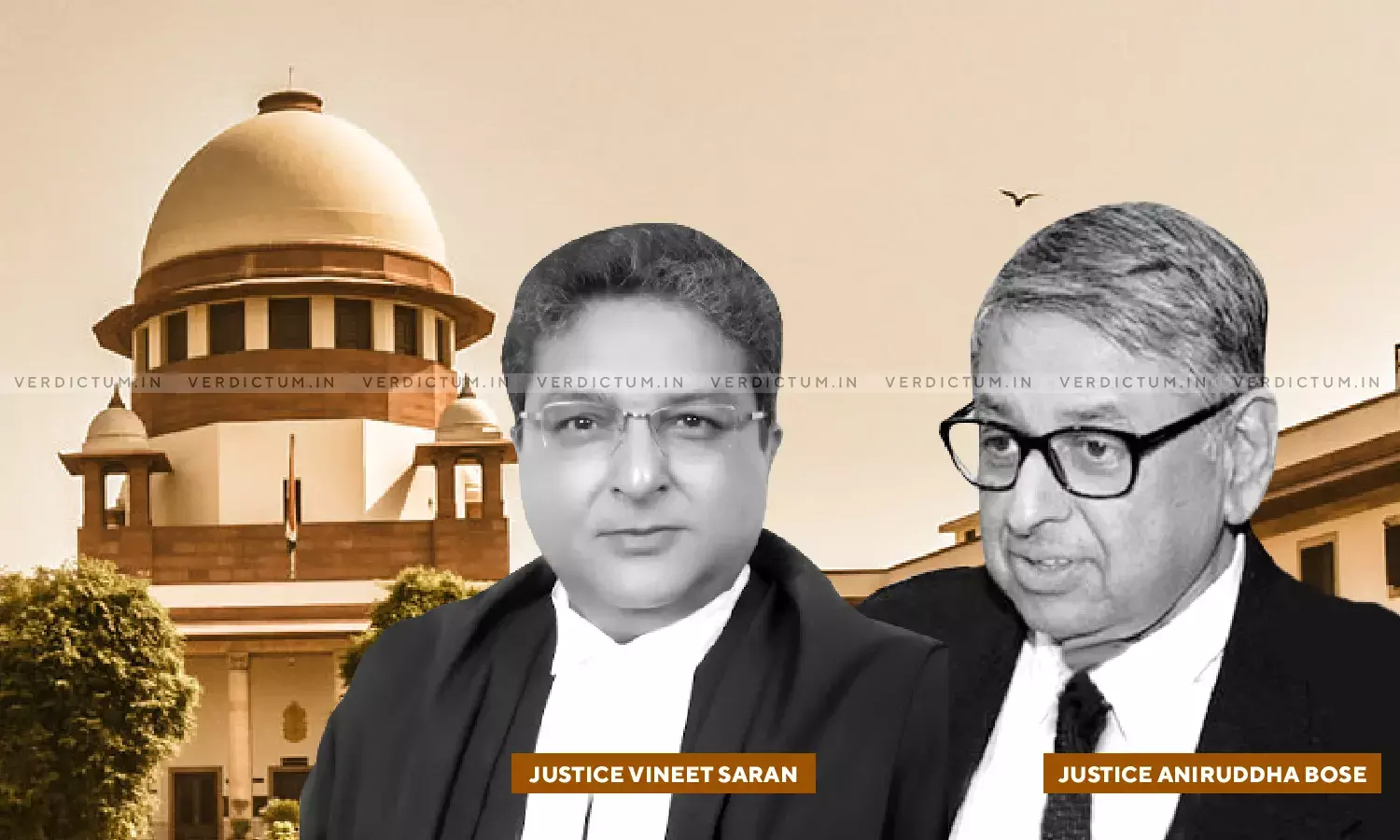Magistrate Can Summon Person Not Arraigned As Accused In FIR Or Police Report If Evidence Indicates His Involvement - SC

A two-judge bench of Justice Vineet Saran and Justice Aniruddha Bose has held that there is no bar under Section 190 CrPC for the Magistrate to take issue summons to a person whose name has not been arraigned as accused in the First Information Report or the Police Report if there is sufficient material available that indicates his prima facie involvement in the commission of the offence.
In this case, an FIR was filed under section 363, 366 and 376 of the Indian Penal Code 1860. After noting the statement of the victim under Section 161 of Criminal Procedure Code 1973 a chargesheet was filed against one Yogesh and one Rupa but the name of the appellant (Nahar Singh) was not mentioned in the FIR, chargesheet nor in Section 161 statement. An application for summoning the appellant was rejected which later was taken to session court under its revisional jurisdiction. It was also observed in the order of the Revisional Court that the Magistrate should pass a lawful order to summon the accused, Nahar Singh.
The Allahabad High Court allowed the appeal and answered in the affirmative to summon the Appellant.
The High Court had relied on the decision of a Coordinate Bench of this Court in the case of SWIL Ltd. vs. State of Delhi and Another in which it was held there is no bar under Section 190 CrPC that once the process is issued against some accused, on the next date, the Magistrate cannot issue process to some other person against whom there is some material on record, but his name is not included as accused in the charge-sheet.
The Apex Court held that materials to be relied upon by the magistrate need not remain confined to the police report, charge sheet or the F.I.R, a statement made under section 164 of the code could also be considered for the same.
The Bench placed reliance on the judgement of Dharam Pal and Others vs. State of Haryana and Another and several other judgements and held that a person whose name does not appear even in the FIR or in the charge-sheet or whose name appears in the FIR and not in the main part of the charge-sheet but in Column 2 and has not been summoned as an accused in the exercise of the powers under Section 193 CrPC can still be summoned by the Court, provided the Court is satisfied that the conditions provided in the said statutory provisions stand fulfilled. The summoning of additional accused person is an integral part of the proceedings where allegations of facts constituting an offence are made out for taking cognizance.
The Court further relied on the case of Raghubans Dubey v. State of Bihar in which it was held that the duty of the Court taking cognizance of an offence is "to find out who the offenders really are and once he comes to the conclusion that apart from the persons sent up by the police some other persons are involved, it is his duty to proceed against those persons" such duty to proceed against other persons cannot be held to be confined to only those whose names figure in column (2) of the chargesheet.
"In the subject-proceeding, the Magistrate acted on the basis of an independent application filed by the de facto complainant. If there are materials before the Magistrate showing complicity of persons other than those arraigned as accused or named in column 2 of the police report in commission of an offence, the Magistrate at that stage could summon such persons as well upon taking cognizance of the offence," the Bench opined.
Accordingly, the Court held that it did not find any error in the order of the Magistrate that was affirmed by the High Court and dismissed the appeal.

